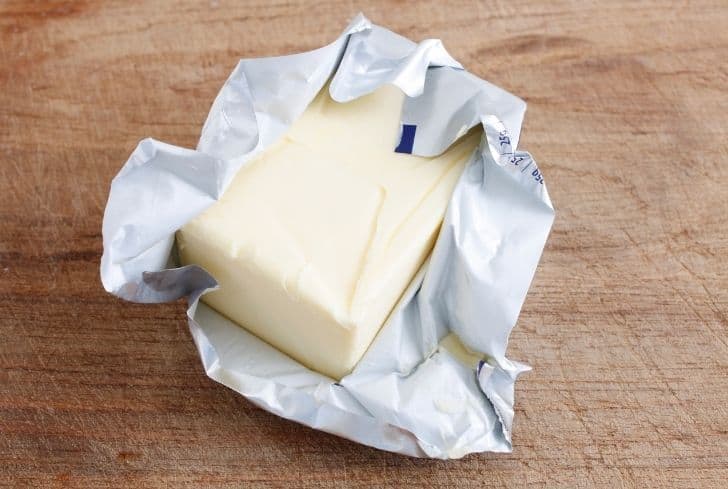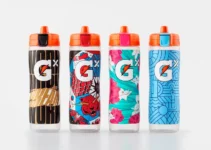The rate of consumption of butter in households has always been high. Still, it seems as if its use is increasing every day. Suppose this assumption is valid and the use of butter is gradually rising in households. In that case, we must learn how to recycle the wrappers properly to reduce waste and keep our environment healthy.
Many use butter in their households for several purposes, either for bread, baking, or cooking. So there is no doubt that an average home would always have a lot of butter wrappers to dispose of. Disposing of them for recycling can be difficult or easy depending on the brand of butter you take and the materials used to package the butter.
Thus, in the post, we will look at recycling butter wrappers, how you can reuse these butter wrappers to reduce waste and every other thing you might need to know about these wrappers. So, dive right in!
Are Butter Wrappers Recyclable?
Most butter wrappers are not recyclable. Butter wrappers are most commonly made of parchment paper, a certain kind of moisture, and grease-resistant paper coated with silicon.
Originally from vegetable fiber, Parchment paper is not recyclable because it has been processed to non-sticky. However, although butter is frequently packaged in this paper, some brands make an exception.
Some brands make use of other options that could be recyclable, such as a jar or other type of material for the packaging. For instance, a fiber-based material for the package. Hence, depending on the brand of butter you use, your butter wrapper might be recyclable or not.
Aside from this, some recycling facilities might not accept butter wrappers, so you might have to find a method of disposing of your butter wrappers by yourself.
Depending on the brand of butter you use and your recycling facility, it might be challenging to dispose of your butter wrappers in the trash and have them carted off to a recycling facility. In such cases, you probably wonder what to do to this dilemma.
You can simply change your brand to the few brands with recyclable wrappers or switch to butter in jars that we can reuse after consuming the butter to fill other items. Or, you can make your butter from scratch.
Yet, suppose you find it hard to change the brand of your butter; that’s quite alright. You can reuse the butter wrappers in your home for greasing pans during baking, packing candies, and several other uses. Although most of them will eventually end up in the landfills, you would have utilized them as much as you could.
Is Butter Paper Biodegradable?
A butter wrapper’s surface is impenetrable by grease, making it an excellent material for packaging butter. The paper coated with silicon from chemicals makes it non-recyclable. Still, we know that non-recyclable doesn’t equal non-biodegradable.
When a material is biodegradable, this in simple terms means that the material could organically be broken down with the aid of microorganisms with or without oxygen and assimilated by the environment in the shortest time possible.
Some materials, when disintegrated, can cause harm to the environment due to the release of chemicals. These chemicals might be toxic to both the environment and humans around. So, let’s discuss if a butter wrapper is degradable and if its disintegration is eco-friendly or not.
Butter wrapper is a biodegradable material, but this doesn’t ultimately make it environmentally friendly. Not all butter wrappers are entirely biodegradable because they are made from parchment paper, and there are two types of parchment paper. Brown parchment paper and white parchment paper. The brown paper is unbleached while the white has been treated with chlorine.
Parchment papers are mostly bleached for aesthetic purposes, especially in butter wrappers to make it more appealing to the buyers, but at what costs?
Brown parchment paper is fully biodegradable, while white paper is less degradable. The breakdown of a white paper is risky to the environment because it has been bleached with chlorine. Thus, it releases chemicals that can be hazardous to the environment and human health when breaking down.
Hence, you have to confirm if your butter was packaged with white or brown parchment paper from the manufacturer’s information before purchasing it, so you would be able to dispose of your butter wrappers properly without causing harm to the environment.
In summary, brown parchment paper is good for the environment when biodegraded. It can take around 30 to 60 days to biodegrade completely. On the other hand, the white parchment paper is unsuitable for the environment because of the bleaching process.
Some brands, such as If you care, Reynolds, etc., are well known for fully biodegradable butter wrappers. In addition, it is vital to note that if you dispose of bleached parchment paper in the wrong way, it will not decompose.
So, a simple method to properly dispose of it is to cut it into smaller pieces to hasten the biodegrading process.
Are Butter Wrappers Compostable?
Materials that can be broken down and are biodegradable in an eco-friendly manner can easily compost. Why is that? The primary aim of a compost pile is to produce fertilizer, and for this to happen, the material has to be broken down completely.
Butter wrappers are compostable, but it’s based on a condition, whether the paper used is bleached or not.
We have discussed bleached and unbleached paper above, so you should understand that unbleached paper can effortlessly go into the compost pile because it can quickly biodegrade, unlike its bleached counterpart. Brown butter wrappers are also a good source of carbon material which is greatly needed for a compost pile.
Materials rich in carbon are needed in compost because they provide energy for microbes to break down the organic material. You can cut the parchment paper into smaller pieces for better effect and quick disintegration.
However, note that it is essential to keep bleached parchment paper far away from the compost bin because their composition will release dioxins. This release is not friendly to the environment and can also cause food contaminations when used as fertilizers, leading to other health implications.
Therefore, even though bleached parchment paper can be biodegraded, You shouldn’t add it to a compost pile. Ensure you check the manufacturer information to confirm because bleached forms are more common than unbleached ones.
If your butter wrapper is made from natural unbleached parchment paper, then there’s no reason not to go ahead and add it to the compost pile.
But, you should ensure that you confirm that a parchment paper is unbleached because not only can it contaminate your compost, it can infect your garden or crops when the compost is utilized.
Can Butter Wrapper Be Frozen?
Although butter wrappers made from bleached parchment paper will take longer to degrade, they are still biodegradable. Hence, it isn’t recommended for bleached butter wrappers to be recycled by this method because they release chemicals that aren’t eco-friendly during this process.
Rather than breaking them down organically, why not search for other environmentally friendly recycling methods instead. Reusing a butter wrapper in your home is a simple way to do this.
To answer the question. Yes, you can freeze butter wrappers. After using butter in a butter wrapper, for cooking, baking, etc. There’s always still leftover grease that’s left on the paper, and this is not a great addition to the compost pile, so disposing of a butter wrapper into the compost pile directly after use isn’t recommended.
Oils slow down the composting process. Hence, keeping a butter wrapper by freezing it for future purposes might be the best method to recycle the wrappers.
The idea might seem crazy, but the advantages of a butter wrapper in the kitchen should not be ridiculed as they come in super handy and can even save you the extra money for buying parchment papers for baking.
So, whenever you use the butter in a fresh butter wrapper, fold it into two, put it into a ziplock bag, and keep it in the freezer for future purposes.
What Can You Do With Butter Wrappers?
Reducing environmental footprint has been encouraged in lifestyles for the past years. As someone whose favorite room in the home is the kitchen, there are several methods you could contribute to this. Proper garbage disposal is one, but reusing butter wrappers to utilize this product is another.
You can use butter wrappers for a lot of things in the kitchen, and although the idea of saving empty butter wrappers sounds ridiculous, let’s take a look at some of what we can use them for in the kitchen.
1. Grease Pan and Baking Sheet
When baking, we need to grease the pan that we would use to avoid sticking. In such a situation, some use their hands to spread butter in the pan while others use wax paper. But instead of using wax paper or your hands, you can easily use empty butter wrappers to grease your pan.
Not only will you save money, but you’d also keep your hand clean. We all know how annoying it can be to wash off grease. So it is a win-win. Using a butter wrapper to grease a pan makes it easier to lubricate the corner of the pan and reduces waste.
2. Replace Non-Stick Spray
Non-stick sprays are a form of oil used in the kitchen to lubricate pans and pots. The spray oil contains lecithin, an emulsifier that helps bind food, an antifoaming agent, and fuel.
The primary aim of this spray is to coat your food and avoid sticking during baking or cooking. Empty butter wrappers can work pretty well as a replacement for this spray when used to grease the pan and help you save money.
3. Alternative for Foil Paper
Are you in need of a baking sheet but can’t find one? Your stored butter wrappers can come in handy in this situation. They are parchment paper, so you can use them to line a pan for baking or cover a hot baked product, i.e., bread, which will melt the remnant of the butter on the baked product, adding to its flavor.
4. To Store Baked Goodies
If you are a baking lover, you would be super grateful to use butter wrappers when you learn this little hack.
You could use butter wrappers for packaging candies, cookies, and other small baked products for storage, and if it is an unmarked butter wrapper, you can use them to pack these goodies as a gift.
Conclusion
Butter wrapper is a common waste in the kitchen. Learning how to utilize it and recycle it would help reduce waste and significantly decrease our environmental impact. So, it would help if you made a conscious effort to opt for eco-friendly options for butter.






